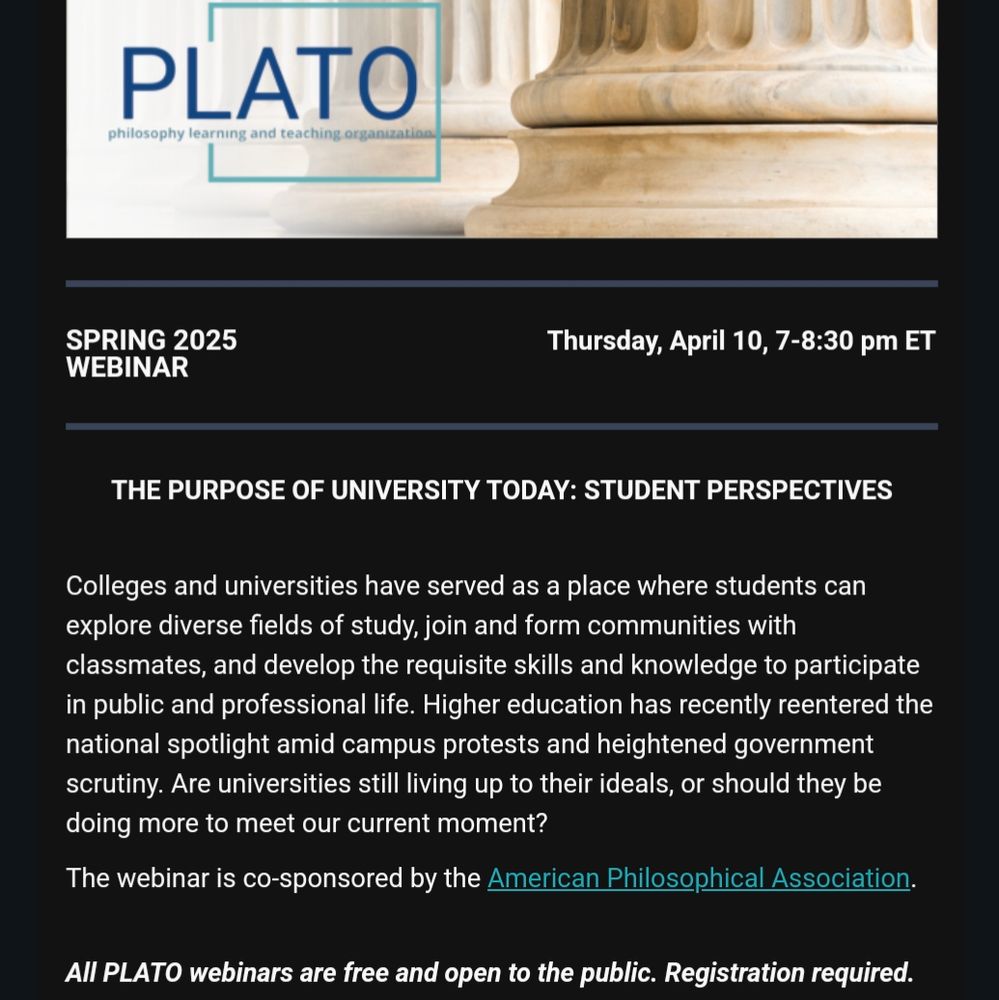I think about emotions, morality, beauty, disability.
Author of The Philosophy of Envy. She/they.
https://saraprotasi.weebly.com/
https://philpeople.org/profiles/sara-protasi
#philosophy #philsky

podcasts.apple.com/us/podcast/1...


uchumanitiestech.org/2026-confere...

uchumanitiestech.org/2026-confere...
#PhilSky #philosophy @nehgov.bsky.social @altnehgov.altgov.info



link.vox.com/view/608adc6...

link.vox.com/view/608adc6...
#philsky #philosophy
#philsky #philosophy


My colleague Tanya Erzen is a mensch. www.pugetsound.edu/stories/seco...
My colleague Tanya Erzen is a mensch. www.pugetsound.edu/stories/seco...
#PhilSky #philosophy

#PhilSky #philosophy


#philsky @rudysalo.bsky.social @goodisinthedetails.bsky.social

#philsky @rudysalo.bsky.social @goodisinthedetails.bsky.social
#philsky
#philosophy
#PositiveMoralPhilosophy

#philsky
#philosophy
#PositiveMoralPhilosophy
#philsky
#philosophy

#philsky
#philosophy
#philsky
#philosophy

#philsky
#philosophy
www.apaonline.org/events/Event...

Co-sponsored by @apaphilosophy.bsky.social
#webinar #student #university #philsky #edusky #edsky

Co-sponsored by @apaphilosophy.bsky.social
#webinar #student #university #philsky #edusky #edsky
#philsky
#philosophy

#philsky
#philosophy
If we don't think they're there, we won't look; if we don't look we won't find them. Here's to finding more!

If we don't think they're there, we won't look; if we don't look we won't find them. Here's to finding more!
Sara Protasi defends the value of sleeping in her latest @apaphilosophy.bsky.social article. Read her blog post here:
www.cambridge.org/core/blog/20...


